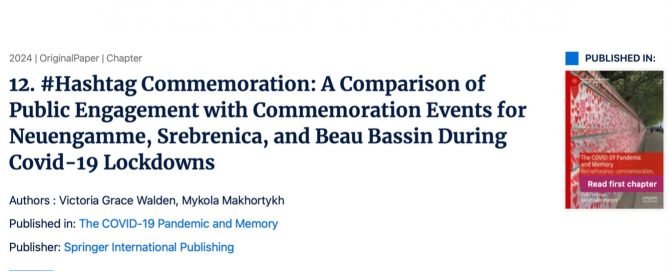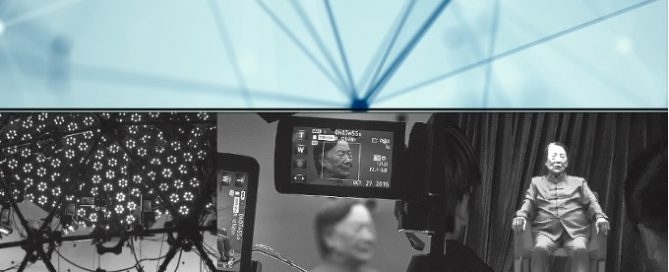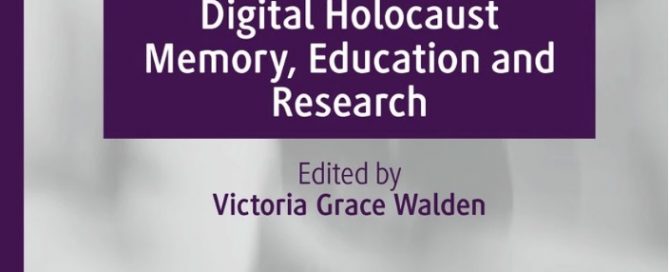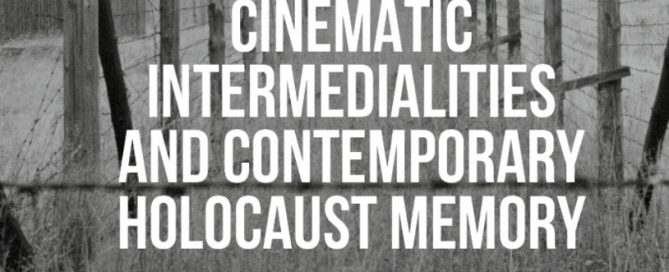#Hashtag Commemoration: A Comparison of Public Engagement with Commemoration Events for Neuengamme, Srebrenica, and Beau Bassin During Covid-19 Lockdowns
Abstract In our chapter, we investigate how the Covid-19 restrictions affected the translation of in-person commemorative ceremonies into online-only events. Whilst the majority of existing research has a relatively small scale, we have turned to the larger scope of social media data to examine wider online memory culture. To do so, we conduct comparative analysis of Twitter, Facebook, and Instagram data from institutions organising commemorative events for the liberation of Neuengamme, the massacre at Srebrenica, and the liberation of Beau Bassin together with non-institutional posts using the hashtags from these institutions. Through this analysis, we aim to answer our main research questions: how do the online discourses by institutions and the wider public compare in relation to posts using shared hashtags during major commemoration periods during Covid-19 lockdowns? To what extent did the move to remote engagement during the pandemic reconfigure the so-called bifurcation of memory culture, between institutional and popular memory discourse (Hoskins, 2014) in any way that might suggest that the lockdowns evidence a change in commemoration practices? Our findings demonstrate that despite the major anniversaries marked in 2020, related memory institutions had little impact on social media, and their commemorative approaches in these spheres were not transformed [...]



